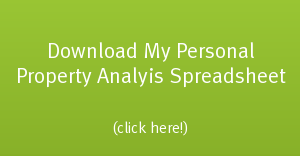Buying real estate costs money. However – it doesn’t have to be your money. With the right mix of resourcefulness, creativity, and knowledge you can buy real estate with no money of your own. Don’t believe me? I speak from experience! Nearly every single property I have ever purchased has been without any money from myself. The following are seven strategies that can help you buy real estate without spending any of your own money.
- Use Hard Money– hard money lenders are private individuals who loan on property based primarily on the value of the property (read my post on Hard Money Lenders here). Although lenders have been tightening their standards in recent years, they still will generally lend 100% of the purchase price and possibly even repairs if the deal is good enough. They need to feel secure in their investment, so if you only need $50,000 for a property that is going to be worth $100,000 – you may not need to put in any money. Just remember though – lenders are going to be conservative on their values so don’t overestimate the future value.
- Use your Home Equity – Do you already own your own home? Did you know you can pull out equity in the form of a Home Equity Line of Credit (usually a variable but low interest rate) or Home Equity Loan (usually a fixed interest rate but higher) to use to buy an investment? Not only is this money relatively cheap to borrow, you may also be able to deduct the interest on your taxes (but see a CPA for details).
- Use a Partner – Do you have knowledge, motivation, and skill but lack financial resources? You are in luck! Much of the professional world has financial resources but lack knowledge, motivation, and skill! Use your networking skills to find others who have the missing piece in your strategy and become partners. Make sure that everything is spelled out clearly up front and everything is in writing.
- Raise Private Money: Similar to a hard money lender, you may be able to find wealthier individuals who want to earn more on their investments than the stock market or a savings account can pay. Many real estate investors will offer their clients a set 12-20% return on their investment, secured by a lien on the property. This creates security for the private lender and funds for the real estate investor. A true win-win.
- Use a Lease-Option – A lease-option is a strategy used in real estate to buy homes from homeowners without actually taking legal ownership. Instead, the real estate investor signs a long-term lease with the house owners as well as signing a legal “option” to buy the property at a specific price in the future. The owners are not legally allowed to sell the property until the option period is up, and the investor gets to lock in his future purchase price as well. The investor can then easily rent the property out for cashflow or find a buyer to sell his “option” to.
- Buy properties “Subject-To” – Buying a home using a “subject to” strategy involves actually transferring legal title from the old owner to the new investor – without paying back the original mortgage that the old owners had. While the bank may not appreciate not being paid back, as long as payments are continued to be made, usually the bank will either never find out or never care. This strategy is a bit riskier, but as long as you have a backup plan, it is perfectly acceptable.
- Use a Combination – Finally, you can mix and match using any of the above scenarios. Perhaps use a hard money lender to purchase the property and use a partner to refinance into a thirty year fixed mortgage after the repairs are done? Or perhaps use a lease-option until you can raise private money to cash out the sellers?
As you can see, there are a huge variety of ways to buy real estate without sacrificing your own money. If you are resourceful and the deal is a good one, you will have no problem buying real estate without any money of your own. Don’t let “I’m too broke” become an easy excuse not to invest.
P.S. looking for hard money loans in California? Be sure to check out my friends over at northcoastfinancialinc.com. They have very competitive rates, can fund within a week and specialize in fix and flip loans and other hard money loans.
 If this is your first time here at Real Estate In Your Twenties.com - welcome!
If this is your first time here at Real Estate In Your Twenties.com - welcome! 





